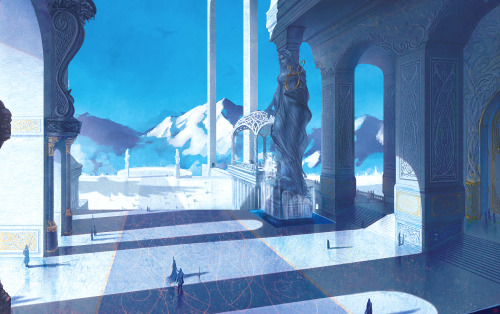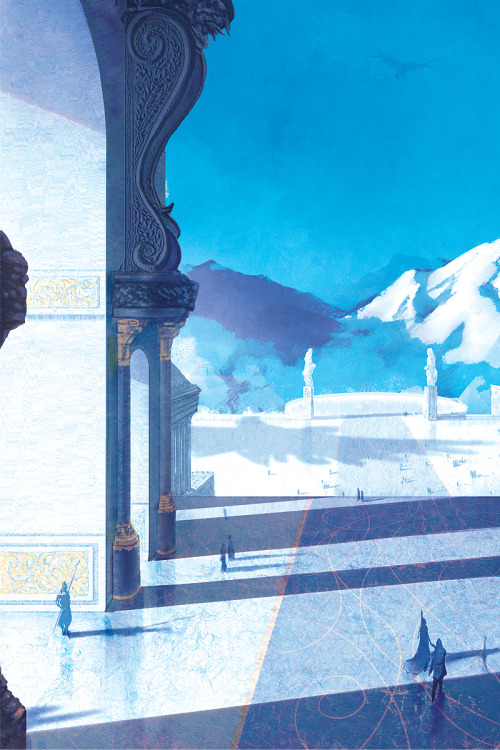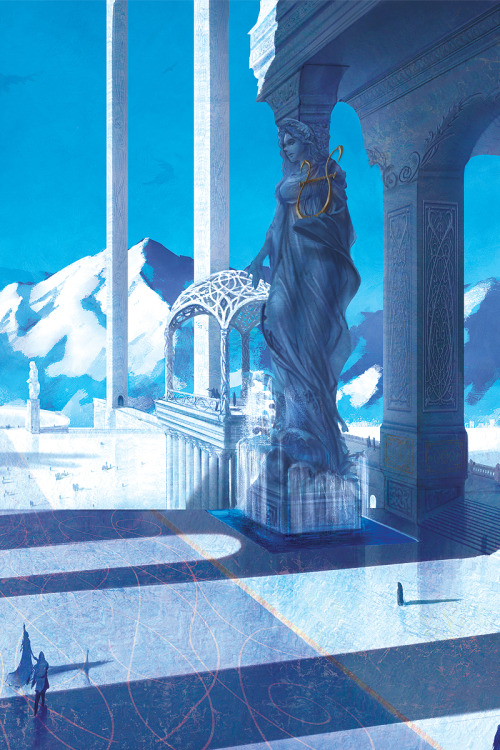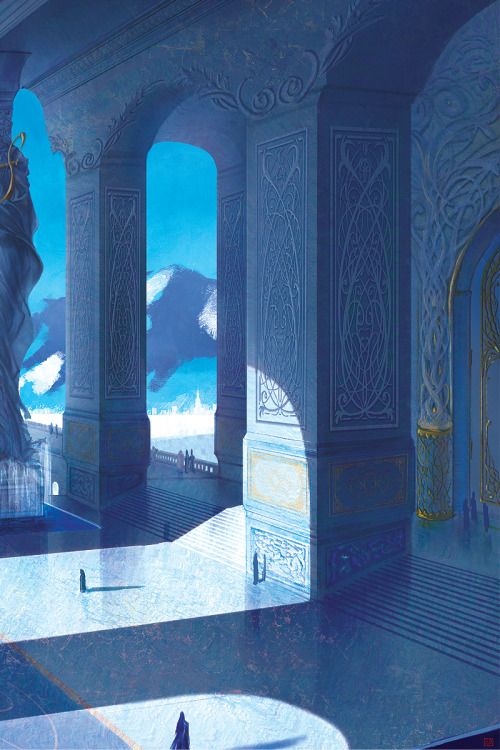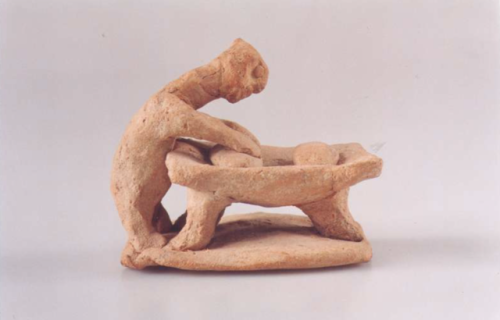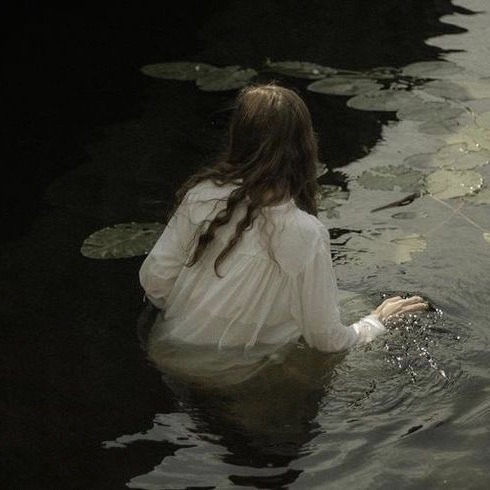I AM A WIND IN THE SEA I Am A Sea-wave Upon The Land I Am The Sound Of The Sea I Am A Stag Of Seven Combats

I AM A WIND IN THE SEA I am a sea-wave upon the land I am the sound of the sea I am a stag of seven combats I am a hawk on a cliff I am a tear-drop of the sun I am the fairest of flowers I am a boar for valour I am a salmon in a pool I am a lake in a plain I am the excellence of arts I am a spear that wages battle with plunder I am a god who forms subjects for a ruler Who explains the stones of the mountains? Who invokes the ages of the moon? Where lies the setting of the sun? Who bears cattle from the house of Tethra? Who are the cattle of Tethra who laugh? What man, what god, forms weapons? Indeed, then; I invoked a satirist... a satirist of wind. The Book of the Takings of Ireland tells the story of six races that came to the island: the Cessarians, the Partholónians, the Nemedians, the Fir Bolg, the Tuatha Dé Danann, and lastly the Milesians, who were the ancestors of the modern Gaels. According to the legend, the bard Amergin Glúingel, one of the seven sons of Mil, recited this poem as he set his foot upon the land of Ireland for the first time.
The Song of Amergin is the most famous example of old Irish rosc poetry, and its vivid, cryptic imagery has captured imaginations for centuries, inspiring theories, stories, and songs of its own.
(Translation adapted from the Celtic Heroic Age by Koch & Carey)
More Posts from Honeywheats and Others
Morning Offering Prayer to Lugh

O Lugh,
sun shining upon me,
I offer You my prayers, works,
joys and sufferings
of this day,
Bless me with Your wisdom,
Your courage, Your skill,
Forever and Always
Forever and Always
absolutely nobody:
me: this is literally lord of the rings
-
 nihilnihilnihil2 liked this · 4 months ago
nihilnihilnihil2 liked this · 4 months ago -
 pokepals052 reblogged this · 1 year ago
pokepals052 reblogged this · 1 year ago -
 hotniatheron liked this · 1 year ago
hotniatheron liked this · 1 year ago -
 goodmornincaptain liked this · 1 year ago
goodmornincaptain liked this · 1 year ago -
 roseprickeddragon reblogged this · 2 years ago
roseprickeddragon reblogged this · 2 years ago -
 roseprickeddragon liked this · 2 years ago
roseprickeddragon liked this · 2 years ago -
 blackthorn-mac-lir liked this · 2 years ago
blackthorn-mac-lir liked this · 2 years ago -
 darkestday828 reblogged this · 2 years ago
darkestday828 reblogged this · 2 years ago -
 darkestday828 liked this · 2 years ago
darkestday828 liked this · 2 years ago -
 connors-conjurations reblogged this · 2 years ago
connors-conjurations reblogged this · 2 years ago -
 connors-conjurations liked this · 2 years ago
connors-conjurations liked this · 2 years ago -
 solasdream liked this · 2 years ago
solasdream liked this · 2 years ago -
 torchlitowl reblogged this · 2 years ago
torchlitowl reblogged this · 2 years ago -
 runningwithfawns liked this · 2 years ago
runningwithfawns liked this · 2 years ago -
 lingeriewitch liked this · 2 years ago
lingeriewitch liked this · 2 years ago -
 ricsilvan liked this · 3 years ago
ricsilvan liked this · 3 years ago -
 soulkeepercoffee liked this · 3 years ago
soulkeepercoffee liked this · 3 years ago -
 americanpsychopomp liked this · 3 years ago
americanpsychopomp liked this · 3 years ago -
 avalon-dreaming liked this · 3 years ago
avalon-dreaming liked this · 3 years ago -
 yellovbuttercups reblogged this · 3 years ago
yellovbuttercups reblogged this · 3 years ago -
 yellovbuttercups liked this · 3 years ago
yellovbuttercups liked this · 3 years ago -
 violetcancerian liked this · 3 years ago
violetcancerian liked this · 3 years ago -
 ladywithalamp liked this · 3 years ago
ladywithalamp liked this · 3 years ago -
 keno liked this · 3 years ago
keno liked this · 3 years ago -
 nefarious-virgo liked this · 3 years ago
nefarious-virgo liked this · 3 years ago -
 pokepals052 liked this · 3 years ago
pokepals052 liked this · 3 years ago -
 mrdaxxonford liked this · 3 years ago
mrdaxxonford liked this · 3 years ago -
 celtictattoo71 liked this · 3 years ago
celtictattoo71 liked this · 3 years ago -
 dragonfaery reblogged this · 3 years ago
dragonfaery reblogged this · 3 years ago -
 dragonfaery liked this · 3 years ago
dragonfaery liked this · 3 years ago -
 camiimash liked this · 3 years ago
camiimash liked this · 3 years ago -
 imherewitheveryone liked this · 3 years ago
imherewitheveryone liked this · 3 years ago -
 fenwyld liked this · 3 years ago
fenwyld liked this · 3 years ago -
 yungmannn liked this · 3 years ago
yungmannn liked this · 3 years ago -
 korrible liked this · 3 years ago
korrible liked this · 3 years ago -
 olorinthesad reblogged this · 3 years ago
olorinthesad reblogged this · 3 years ago -
 llunamarie reblogged this · 3 years ago
llunamarie reblogged this · 3 years ago -
 janiloves liked this · 3 years ago
janiloves liked this · 3 years ago -
 llunamarie liked this · 3 years ago
llunamarie liked this · 3 years ago -
 honeywheats liked this · 3 years ago
honeywheats liked this · 3 years ago -
 honeywheats reblogged this · 3 years ago
honeywheats reblogged this · 3 years ago

Raia. 20 years old. Gaelic Polytheist & Lugh Devotee.
74 posts
